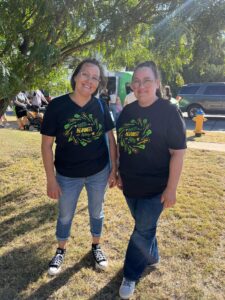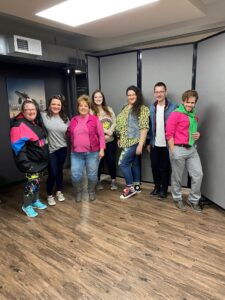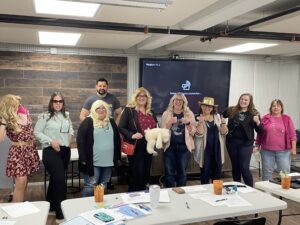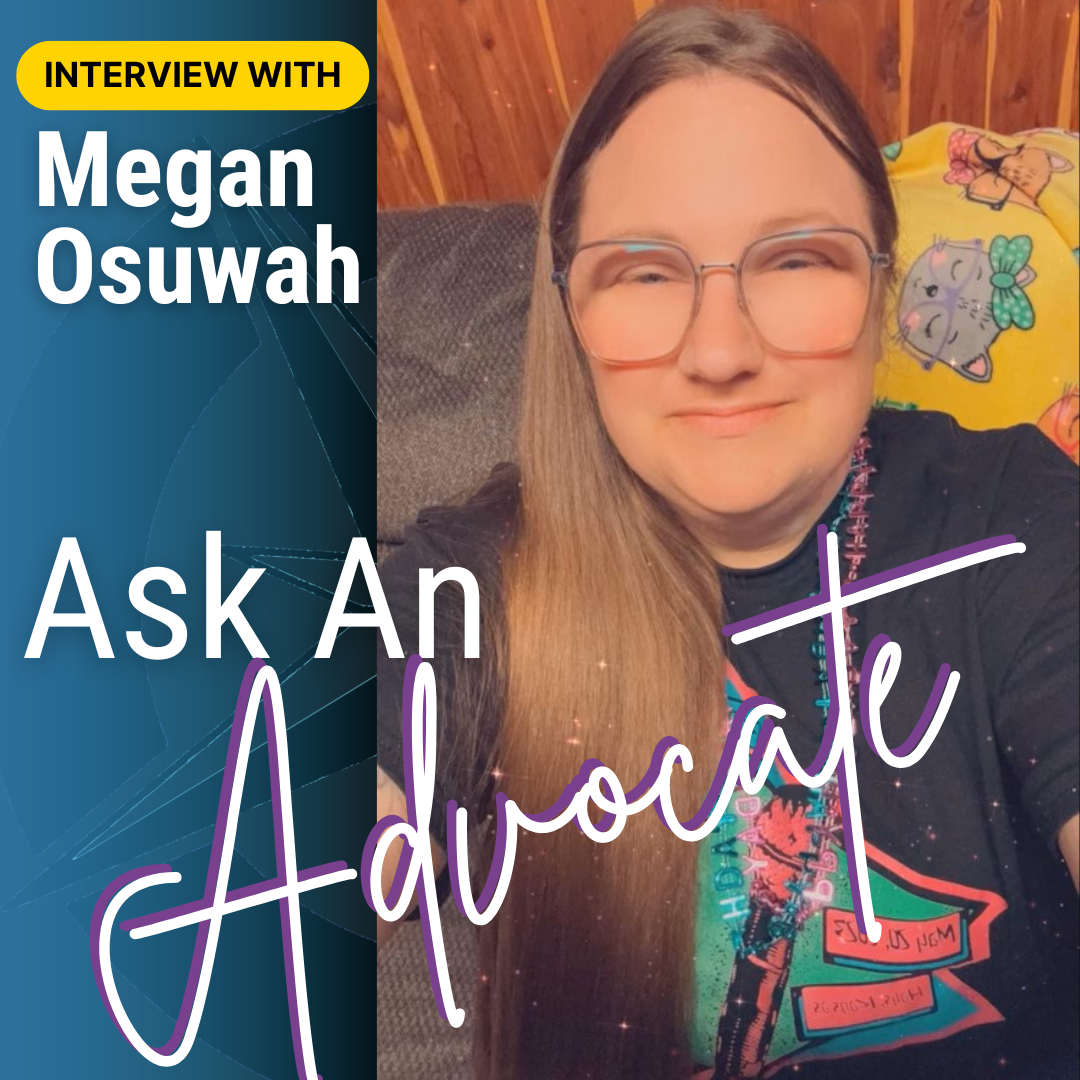We’re delighted to highlight another incredible team member in our ‘Ask An Advocate’ series. This time, we’re featuring Megan Osuwah, our dedicated Shelter Services Coordinator. Megan has been with Options for “three beautiful years and counting,” starting as a Weekend Shelter Advocate before stepping into her current role.
Her passion for providing a safe and supportive environment for our survivors shines through in everything she does. We’re excited to share Megan’s journey and the impact she continues to make every day.
Can you describe your primary responsibilities as an advocate?
“My title is Shelter Services Coordinator, and I oversee all things related to residential clients including emergency accommodation. My primary responsibilities include keeping the safe shelter stocked with hygiene, clothing, and food, ensuring the safety of residents, and supervising the Shelter Advocates.”
What is unique about your role?
“As shelter advocates, we are fully immersed in survivor culture while we’re working. The relationships we develop with those who let us work where they temporarily live can bring about very strong bonds.”
What do you believe is the most important aspect of your job as an advocate?
“I think the most important aspect of my job as an advocate is addressing the immediate safety needs of each survivor. “
What are some of the key challenges you face in your role, and how do you address them?
“We have an 18-county service area, and only 14 bed spaces available for clients needing shelter. That being said, helping survivors navigate through congregate living while also trying to pick up the pieces of their lives is probably the most challenging. Sharing a room with someone you’ve never met, learning their culture, religious differences, etc.”
Is there a particular service or program offered by Options that you find especially impactful or meaningful? If so, why?
“Our 24-hour crisis response, in particular our dedication to responding to the hospital or law enforcement center within 30 minutes of a SA or DV call. I just think it shows our overall commitment to survivor safety, our accessibility, and it builds trust within our community.”
Can you share a memorable success story (while maintaining confidentiality) that highlights the impact of the work you do?
“We are one of the only VSP’s that accept Emotional Support Animals into their safe shelter, and because of that we have helped many individuals and families who would not have left their situation if it meant leaving their fur covered friends behind.”
How do you practice self-care and prevent burnout, given the emotional intensity of the work?
“I have an 8-year-old son at home, so we do a lot of things together. He keeps us busy with gymnastics practice, theatre, science clubs, etc. I find that taking him to a movie two or three times a month really lets me sort of escape to another world for a while. I read a fair amount. Also, naps!”
How do you build trust and rapport with survivors?
“I tend to take a peer-to-peer approach with most survivors. I try to let them know that I’ve been where they are and that I’m going to be there to help them navigate whatever comes next. I understand that with some the trust may come easy, and with others it may never come.”
Could you share any misconceptions about abuse that you encounter within your role?
“That men cannot be victims of abuse. That it only happens in certain social classes. That it wasn’t rape if the victim didn’t say no or struggle.”
In your opinion, what are the most pressing issues facing survivors of domestic and sexual violence today?
“Access to affordable housing and childcare!”
How do you measure success? What does a successful day or client case look like to you?
“Success with survivors comes in all different shapes, sizes, and colors! Success might be that you were able to help a struggling mom of 3 take her kids to school. It might look like seeing the beaten down and bruised survivor that hasn’t left the safe shelter in a week catch the bus to the grocery store.”
What kind of changes or improvements would you like to see in the way society addresses domestic and sexual violence?
“Many victims remain in abusive situations because they rely financially on their abusers. By increasing access to employment opportunities, housing, and financial resources, survivors can gain the support they need to break free from abusive relationships.”
What is your favorite way that Options raises awareness and educates the community about domestic and/or sexual violence?
“Definitely RAR (Rock Against Rape)! I think it’s amazing how Anniston coordinates this event every year to spark conversations about rape culture in our community.”
What advice would you give to someone who wants to pursue a career in advocacy work for domestic and sexual violence?
“It can be really tough to hear about people’s trauma. Having a strong sense of self, being able to set and keep boundaries, and having established ways to process your own feelings will be very helpful in this field. If you’re not super sure about this particular path, volunteering first is a great way to start!”
What do you wish people understood about your role? Or about working as an advocate in general?
“I wish people understood that after a person is victimized and they are finally in a place that’s safe to recover in, that recovery doesn’t look the same for each person. One person or family might bounce back into life with no problems, and another person might not be able to care for themselves for a while. An advocate’s job in shelter is not to tell people how to live or what choices to make, but to show our survivors that someone does care by helping with those tasks that seem impossible.”
How do you handle difficult situations? Personally and professionally.
“I’m a very patient person. And my patience usually allows for me to be able to see different sides to each situation. It took me a long time to be able to move from passive to assertive, and I’m proud of my ability to stay calm and speak clearly in situations that are elevated or even awkward.”
What keeps you motivated and passionate about your work, even when it becomes difficult?
“Options was here for me during my crisis and trauma recovery. They never turned me away, even when my only coping mechanism turned into addiction. They didn’t quit on me when it became difficult. That is my motivation, that is where my passion comes from!”
If you need any additional information, have a question, or a concern, feel free to reach out to Options at our 24-hour toll-free helpline 800-794-4624. You can also reach an advocate via text by texting HOPE to 847411 or click 24-Hour Chat with Options.
This grant project is supported by the State General Fund for Domestic Violence and Sexual Assault, sub-grant number 24-SGF-07, as administered by the Kansas Governor’s Grants Program. The opinions, findings, conclusions or recommendations expressed in this publication are those of the author(s) and do not necessarily reflect the views of the Office of Kansas Governor.


